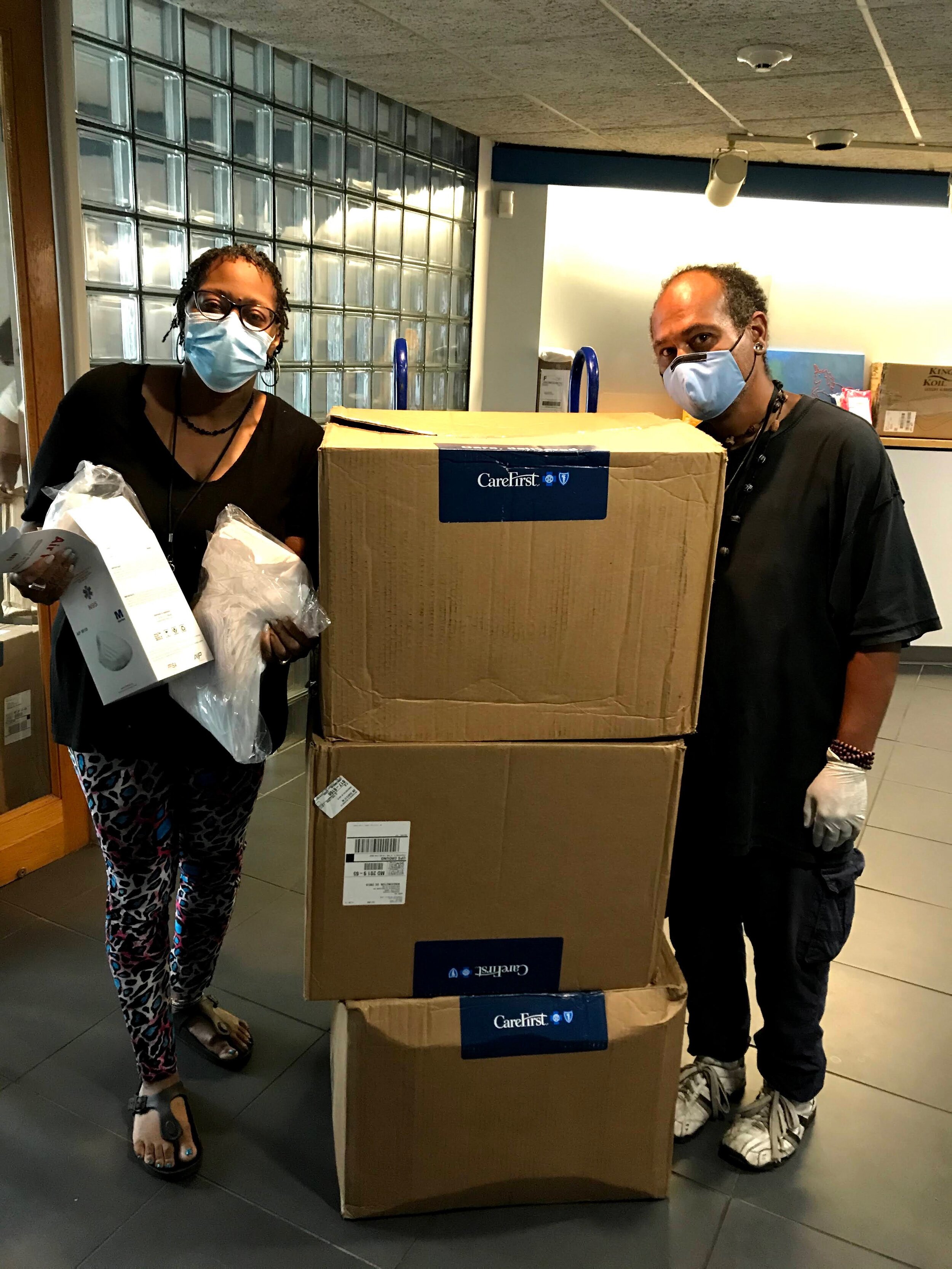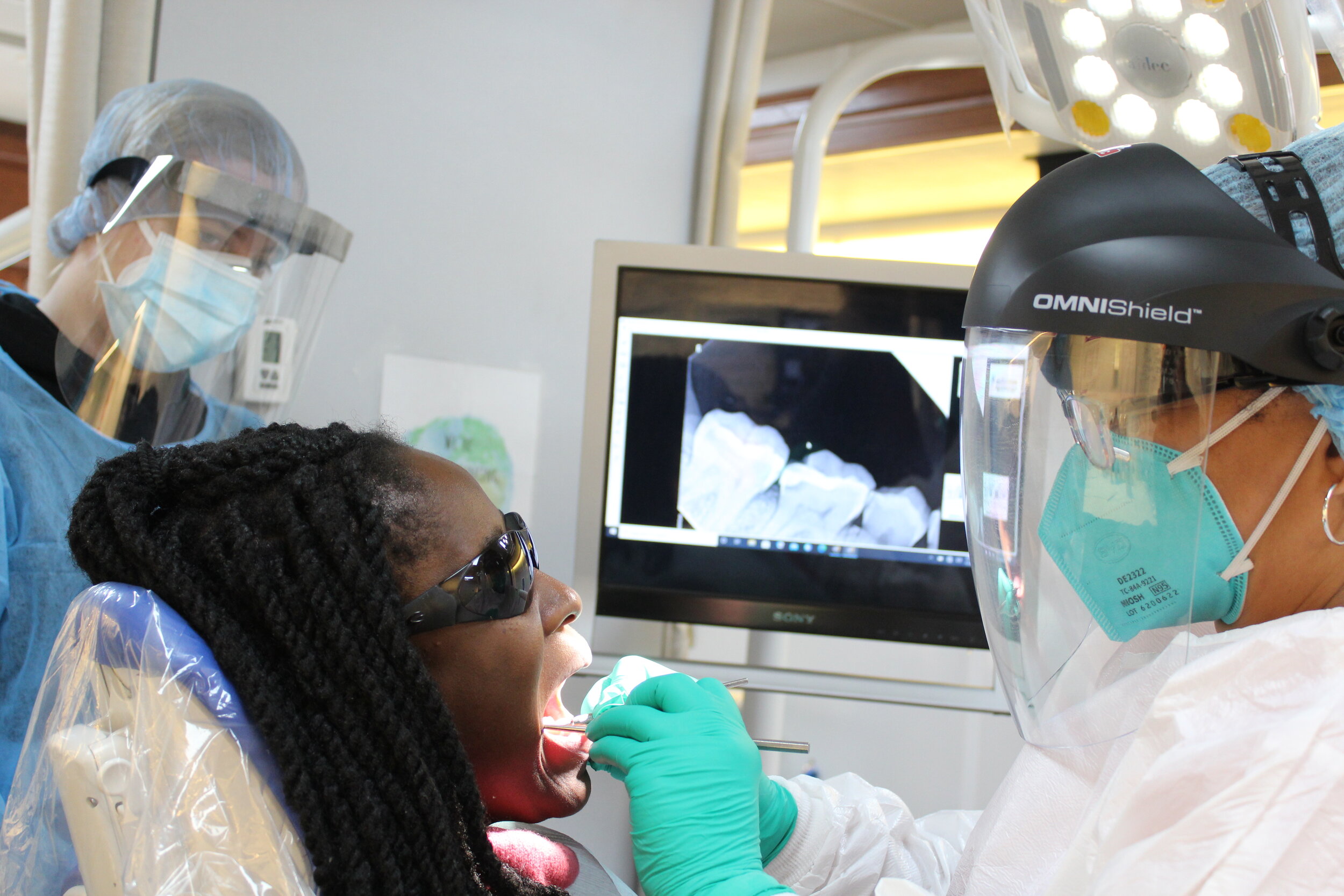Nonprofits Selected Through A Participatory Grantmaking Process
The Children’s Opportunity Fund (COF), a community impact initiative of the Greater Washington Community Foundation, is pleased to announce up to $100,000 in grants to 4 nonprofit organizations working to improve educational outcomes for Montgomery County’s children, youth, and families.
Each organization will receive funding up to $25,000 for project/program support providing direct service, advocating for, or researching literacy skills for children ages birth to 8 and their families.
The Community Foundation recognizes that now, more than ever, it is critical to engage with and empower community voices to advance more equitable solutions. In particular, those that often remain unheard are our Black, brown, and low-income neighbors—and they need a platform to share their views.
To that end, the Children’s Opportunity Fund used a participatory grantmaking framework for its grant review process. Participatory grantmaking drastically alters the traditional funding model by ceding decision-making power over funding to local community members.
Our Participatory Grants Committee included Montgomery County community members, educators, students and parents. This offered a diverse mixture of perspectives and experience, which we hope will promote more equitable decision-making. The review process began with several group discussions on the importance of equity in education, and the opportunity and achievement gaps present in Montgomery County. Committee members then focused on these issues, and insights from their group discussions, when reviewing applications and making final funding recommendations.
Below, meet our new COF grantees and learn how their projects will support and empower students and families in Montgomery County.
Advancing Black Lives in Education
Advancing Black Lives in Education (ABLE) will use this funding to address learning loss for Black students by providing tutoring services, family support, critical learning tools and educational supplies.
“The philosophy behind this impact initiative matches our vision: to provide support to Black children who attend Montgomery County Public Schools in grades pre-K through 5. We’ve seen many parents in the Black community request academic support for their children, as well as assistance in understanding the recovery plan and making informed decisions about their children's return to school.
It is widely known that Black families are disproportionately affected by the coronavirus, economically and with respect to education. This work is important because our children and families need additional support from the community to thrive in the virtual learning environment and after they return to school.” -Natalie Thomas, President
ABLE expects to see a positive impact on children's academic achievement and families' social-emotional stability. ABLE hopes that, by reaching Black parents and providing them with a voice, they will become more actively engaged with their childrens’ school and related activities, such as PTA and school reform.
Story Tapestries
This grant will help fund Story Tapestries’ Discover the Power of the Written Word (DPWW) program, which offers high-impact literacy programs to 1300+ economically disadvantaged youth, educators and caregivers in Montgomery County. This includes professional development for educators, family supports through interactive events, and monthly arts and literacy kits for families.
“Young children in Montgomery County are struggling to adapt to health and safety measures required in response to the COVID-19 pandemic. The hardest hit are those who were already experiencing economic hardship. Many of those children were already behind their peers in learning how to read and write.
Story Tapestries has the tools and community connections to reach these children, their educators and their families - online - with a unique set of resources and services that boost their learning, overcoming barriers such as language, while also increasing an important ingredient in their daily lives - JOY!” -Arianna Ross, Executive Director
Story Tapestries will help bridge the learning gap for children who are behind their peers in learning targets, and generate a feeling of connectedness in 5 school communities, helping promote joy and hope. They will help reconnect educators with their passion for teaching by connect them with Teaching Artist mentors. And, they will help mentor parents on how to support their children more effectively from home.
GapBuster, Inc.
This grant will allow GapBuster, Inc., to offer a Cross-Tutorial Mentoring program to address the widening academic gap for students that have been impacted by COVID-19. It will also help students continue to move from in-person instruction to a virtual learning environment.
“Studies have reported that the digital divide disproportionately impacts students living in poverty and students of color--and COVID-19 has only magnified this problem. Right now communities are suffering, requiring innovative, creative, and aggressive programs that can lead to positive outcomes.” -Yvette Butler-Yeboah, MD, Executive Director
GapBuster, Inc. hopes to positively impact students with our one-on-one and group Cross-Tutorial Mentoring program, resulting in at least 75% of participants improving at least one grade level in math and ELA by June 30, 2020; and, at least 75% of participants reporting reduced stress as it relates to COVID-19
Loud Voices Together
Loud Voices Together will use this grant to fund the Harriet Tubman Scholars program, which supports Black and brown students in Montgomery County, MD, in the areas of literacy and math.
“Loud Voices Together was inspired to apply for this grant because of our commitment to equity and education for all students. We are particularly focused on Black and brown students with disabilities, due to the disparities and inequities experienced historically by this community. This funding opportunity will provide these students with the same opportunities as their economically advantaged peers who can secure literacy and numeracy direct services privately.” -Ronnetta Stanley, M.Ed., Executive Director
Loud Voices Together endeavors to help all students develop adequate reading and math skills, to support their long-term academic and professional success. The hope is that all students will make measurable growth in literacy and numeracy skills through this project.
About the Children’s Opportunity Fund
The Children’s Opportunity Fund is a public-private partnership funded jointly by the Montgomery County Government and Public Schools to leverage public funds to attract private investment. COF champions, plans, and funds strategic investments that improve the lives of low-income children and families in the county. With a focus on innovative, evidence-informed efforts targeted at closing the opportunity gap, COF identifies priority areas for investment based on unmet need, aligns resources toward effective multi-sector collaborations serving the county’s most vulnerable youth and their families, and seeks new funding sources. COF has invested $2 million to expand opportunities for out of school time programs, internships and career prep programs, and early childhood care and education for low-income families.

















